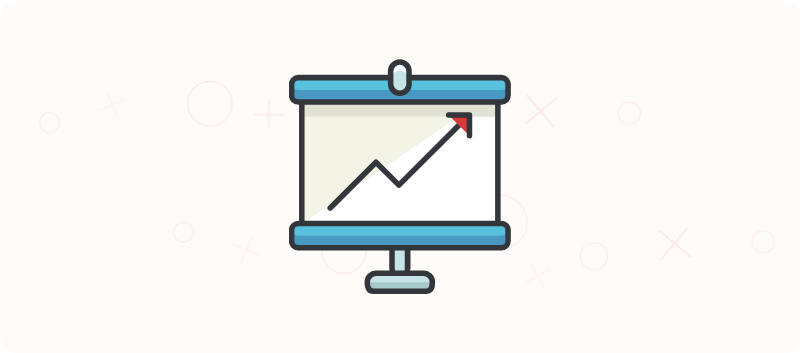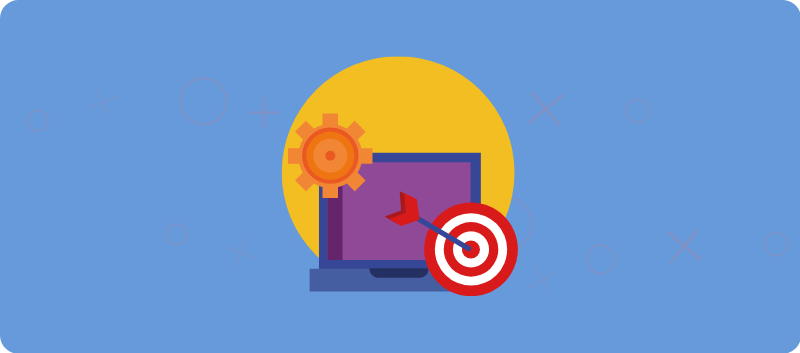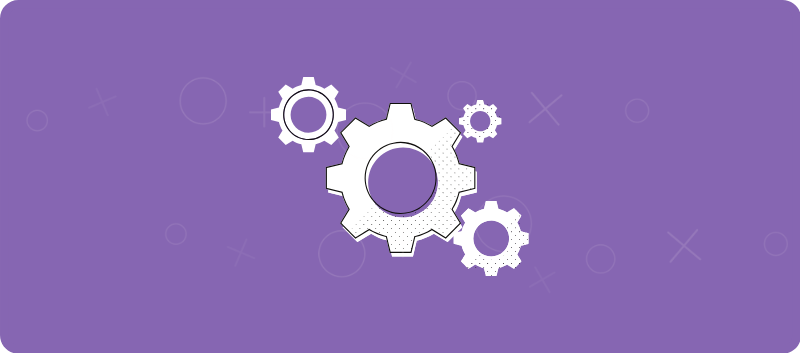25 Tips To Be More Productive at Work (Starting Today)
Is there anything better than feeling like you’ve knocked everything off your to-do list? When it comes to learning how to be more productive, it’s more than just creating a lengthy to-do list, though. You must be deliberate with your time and streamline your work processes in a way that works well for you.
Productivity studies conducted by California State University found distractions are bad habits that “ultimately decreases our effectiveness at work.” Luckily, there are ways to eliminate distractions to learn how to be more productive.
While there are plenty of ways to increase your overall productivity, discovering easy yet effective strategies are what will give you the greatest boost. Here’s a list of the top 25 ways you can learn how to be more productive at work:
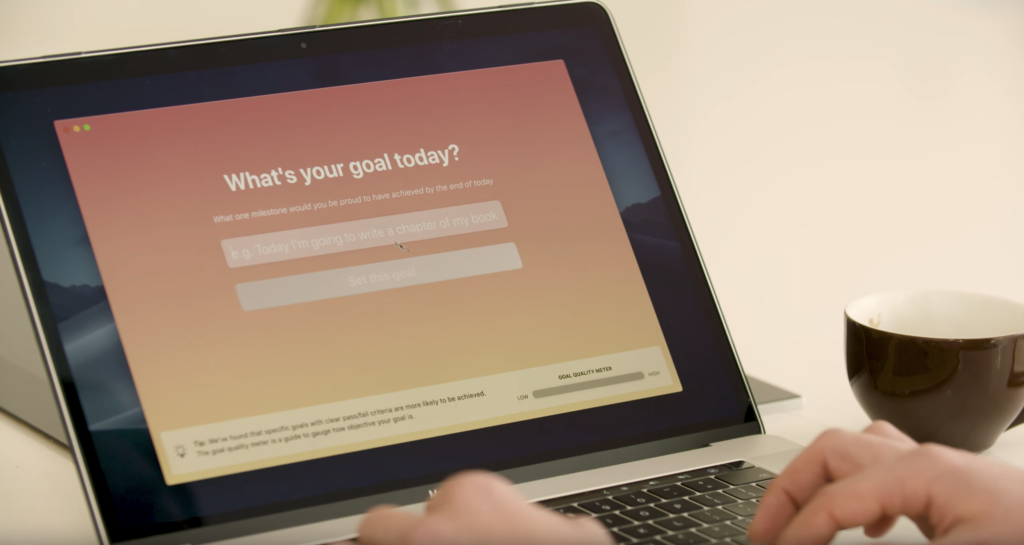
1. Get a Good Night’s Sleep
Unfortunately, we aren’t as productive if we haven’t gotten a proper night of sleep. A 2018 study found that lack of sleep costs the UK economy £40.3 billion every year. Consistently not getting enough sleep impacts physical and mental health, too. When both of those aren’t in peak condition, your work suffers in quality and output.
Takeaway: Aim for at least seven to nine hours of sleep each night.
2. Make a To-do List
When you know exactly what you have on your agenda for the day, it makes it easier to tackle your priorities. Either the night before or in the morning, create a to-do list with your top three priorities for the day.
Takeaway: Write down your daily goals to make sure your priorities are aligned with what you hope to accomplish.
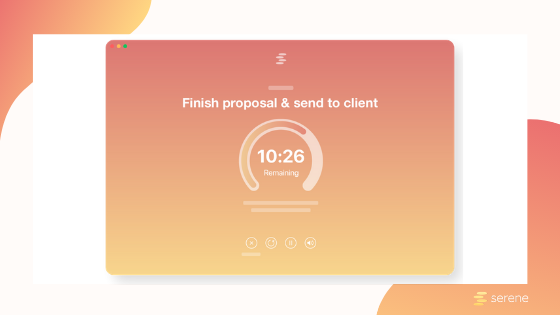
3. Enjoy Your Commute
Commute times are inevitable for most people. If you have a longish commute, you can actually turn it into a relaxed yet productive period of time before work. Consider working on a side project, reading, or listening to an audiobook.
Takeaway: Do something you enjoy that helps you relax before work. If you start the day less stressed, it will help set the tone for the rest of your day.
4. Set SMART Goals
SMART is an acronym for the process of goal setting. This plays an important part of your to-do list creation and priority setting. To ensure your goals are clear and attainable, you’ll want to follow the SMART guidelines:

Takeaway: Setting clear, actionable goals helps you clarify and reverse engineer your daily plans helping you get more done whilst staying on the front foot.
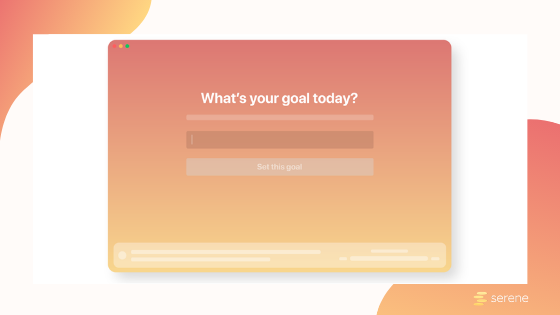
5. Plan Your Day
Create a schedule based on what you have to do and how long it will take. Incorporate your to-do list and your goals when deciding what needs to be tackled for the day.
Takeaway: However you plan your day, getting into that habit of doing it on a consistent basis to keep the momentum going will help you feel in charge of your day.
6. Monitor Your Time
Some tasks shouldn’t take nearly as long as they do. Use a timer and see how long it takes to complete certain repetitive workday tasks. Learn where you can improve and what you do well in order to spend your time more wisely.
Takeaway: Your time is your most precious asset. See how you can speed up processes by cutting useless steps.
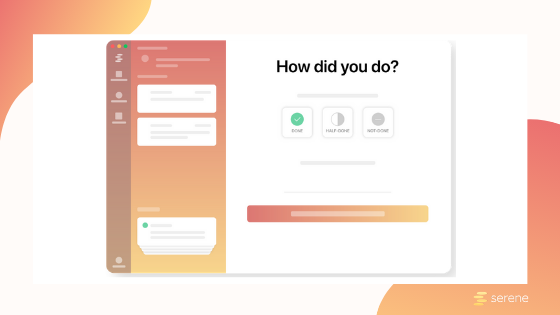
7. Don’t Multitask
Unfortunately, multitasking “well” is a myth. Our brain can only focus on thoroughly doing a single task at a time. Cut out emailing, talking to coworkers, creating spreadsheets, or whatever it is you do all at once. Watch your error rates dip and your productivity skyrocket.
Takeaway: Focus on one thing at a time and watch how your productivity — and work quality — soars. Single-tasking is actually a superpower. Use it!
8. Silence Your Phone
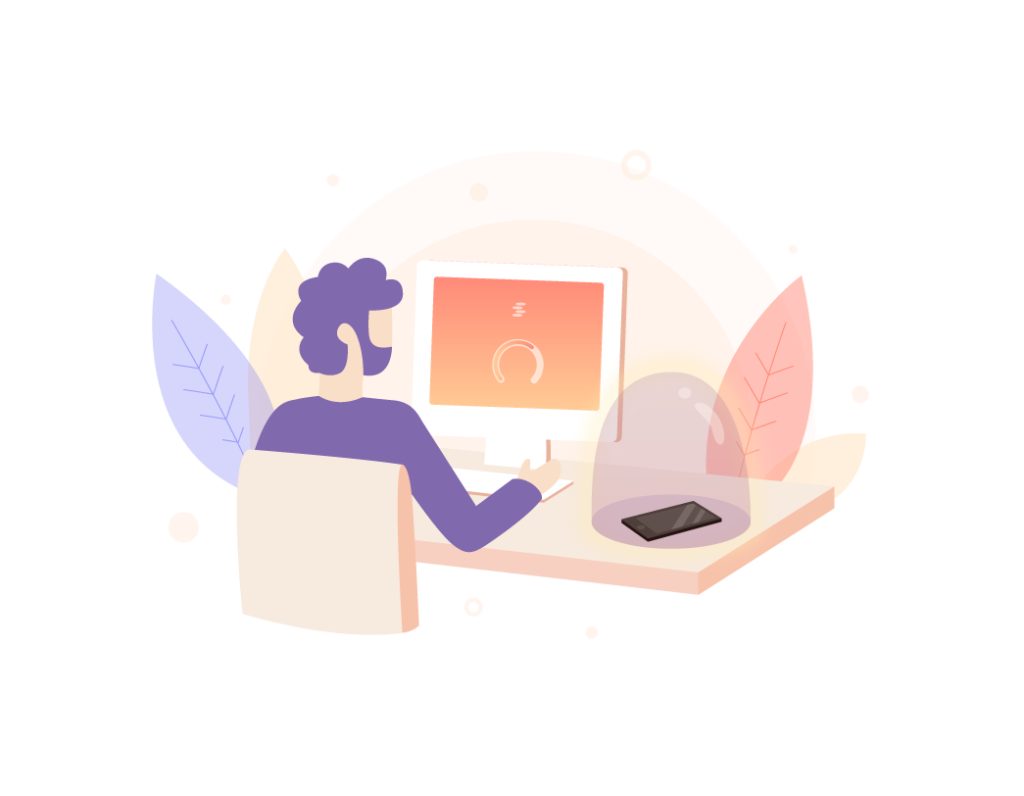
Most of us spend at least an hour daily being distracted by our phones, according to recent studies. Chances are good you really don’t need your phone in order to do your best work. Silence it or put it completely away. You might be surprised by how much work you actually get done when you aren’t checking Instagram every two minutes on your phone.
Takeaway: Limit distractions — like your phone — to be more productive at work. Serene is built to do exactly this.
9. Close Your Email
Email is a time sucker. Consider checking your inbox at certain times of the day — say once when you arrive, before lunch, and before you leave for the day. Close your email when focused on a task to avoid the distraction.
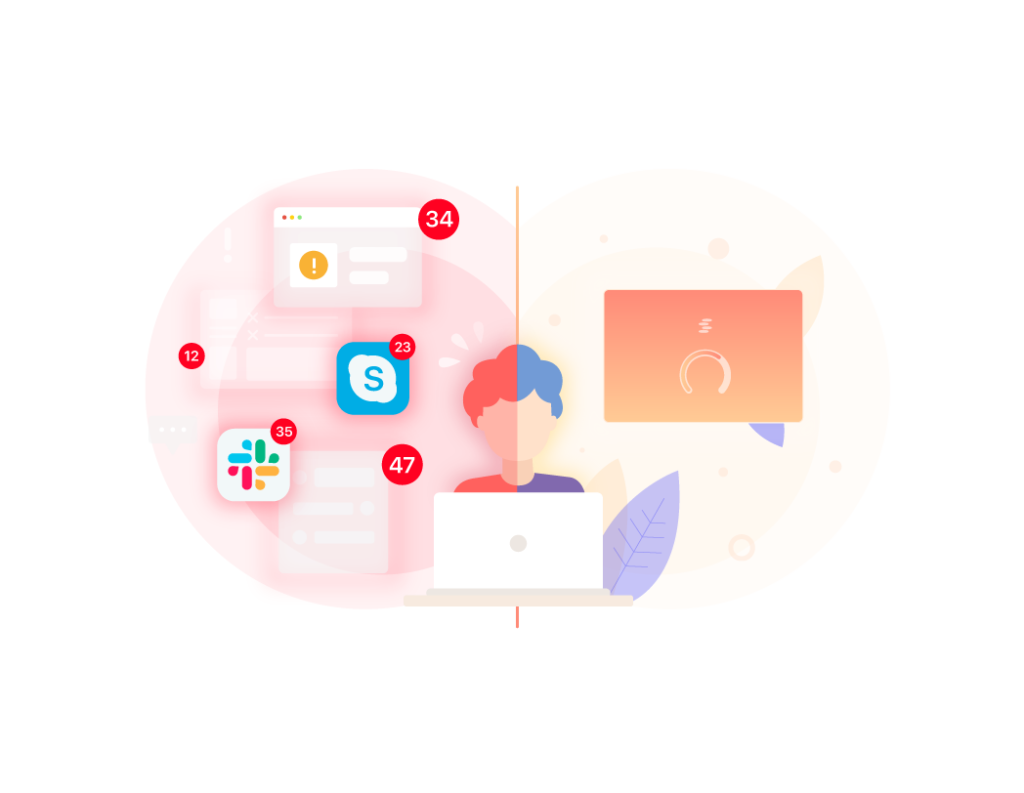
Takeaway: Tally up how many times you check your email in one day. Then, cut that number in half. You probably don’t need to check your inbox half as much as you think.
10. Keep Communications Short
In our ever-connected world, it’s tempting to reach out to colleagues ASAP and spend precious time communicating instead of working. Do your best to keep emails and subject lines as short as possible. When on the phone, leave brief voice-mail messages, too. Doing so saves you and the recipient time.
Takeaway: Don’t make communications longer than necessary. Sometimes, meeting face-to-face will save you more time than sending 20 back-and-forth messages via Slack or email (see #9).
11. Ask for Help
When stuck on a task, ask for help. It’ll save you time in struggling for hours trying to figure it out on your own. Or, if you’re overwhelmed, see if a colleague will help you out.
Takeaway: Asking for help isn’t a bad thing, especially when it can save you loads of time.
12. Delegate
When you can, delegate tasks that you’re not great at or don’t enjoy. If you’re always wondering how you’re going to get all your work done, it may be time to call in reinforcements. Data-entry, spreadsheet creation, etc. can easily be outsourced and free up a lot of time in your day.
Takeaway: Whether you’re an entrepreneur, employee, or contractor, we all have the same amount of hours in the day. Spend time focusing on what you do best and see how you can outsource the other tasks to someone who could do it more efficiently.
13. Say “No”
When you’re overwhelmed, don’t take on more tasks to appear like the go-to person for all projects. The most successful people are protective of their time. This means saying no to certain projects, events, offers, etc. in order to say yes to what you most want to work on.
Takeaway: It’s okay to let others know your plate is full. Taking on more than you can handle is almost always a recipe for disaster.
14. Set Boundaries
If you work in an office, let coworkers know you’re focused on a task and shouldn’t be disturbed. This can be as simple as closing your door or by turning on a “busy” notification on your communication channels. When working from home, have a designated workspace where you’re not disturbed. Let your family or roommates know when you’re in work mode.
Takeaway: Setting boundaries allows you to protect your time and get important work done by minimising distractions. One way you can do this is by using one of Serene’s PRO features. Let your colleagues know whether you’re busy or available by automatically turning an Internet-connected light red when you’re in deep work.
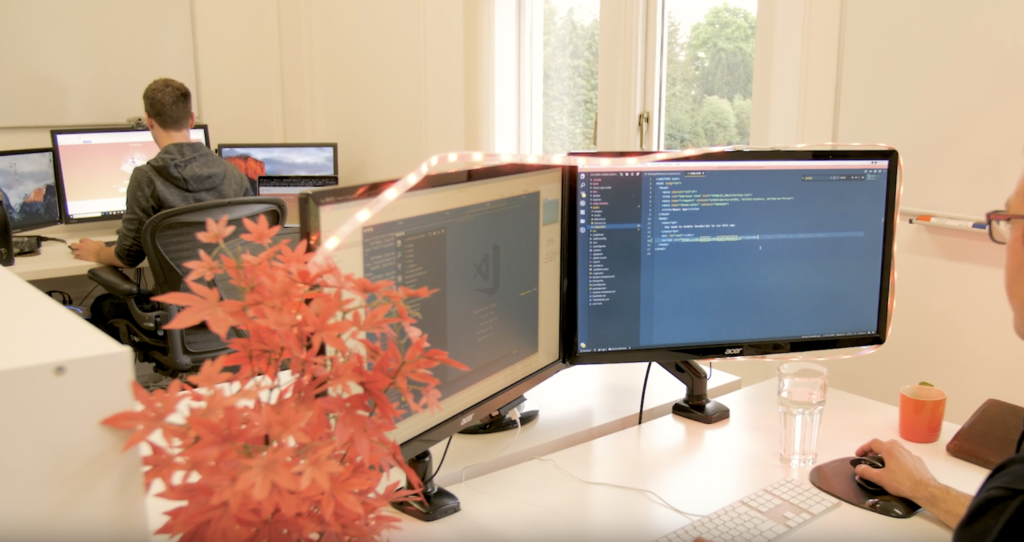
15. Stop Flirting
A study by Ginger Research found that UK employees work the longest hours yet are the least productive. The study discovered the average worker lost about five hours a day to non-work activities including flirting, tea runs, and online shopping.
Takeaway: Minimise non-work related tasks throughout the day to build up your work momentum to get actual work done — instead of flirting.
16. Turn Off Push Notifications
Our technology constantly bombards us with alerts about whatever is happening in the world. Turn off your push notifications on your desktop and phone for the weather, news, and social media feeds.
Takeaway: Any random distraction that can wait should wait. You can always check your notifications on breaks and after work.

17. Lighten Up
Everyone makes mistakes. Skip overanalysing and criticising projects you feel you may have done poorly on. It’s one of the biggest time wasters and keeps you from moving forward on other exciting tasks or projects.
Takeaway: Have a laugh about it, if appropriate. Then, learn from it, move on and apply your lessons to improve next time.
18. Take Care of Yourself
Your body is a machine that needs to be fueled properly, much like an automobile. Unfortunately, if you run your body down and don’t give it fuel, your productivity levels will dip.
Takeaway: Listen to your body’s signals. If you’re hungry, eat. If you’re unwell, rest. Feeling sluggish? Take a walk or get your heart rate up.
19. Reward Yourself
All work and no play is no way to enjoy your workday. While you don’t want to spend your entire workday leisurely tackling projects, a quick break is good for your mind and body. Take a walk or enjoy a light snack between tasks to reset your brain to tackle the next to-do item.
Takeaway: If you overwork yourself, you’re bound to end up with chronic stress and workplace burnout. Even a simple lunch break can help you regain energy and focus after stepping away from work.
20. Listen to Music
If music doesn’t bother you while you work, consider plugging in some headphones to escape into work mode. One study found two-thirds of UK workers felt music on at work was a must. In the same study, 38% of workers said listening to music at work improved productivity levels.
Takeaway: Turn on music if it helps you focus. Classical or other music without lyrics may be better if you need to concentrate on the task at hand. We also wrote this article explaining how music can help your concentration levels. The graph below, illustrates how different genre’s affect concentration.
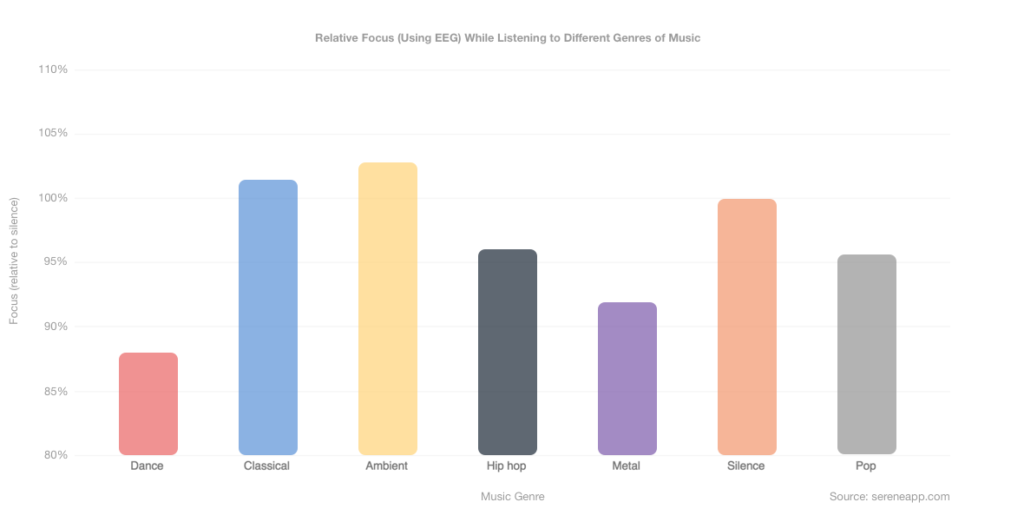
21. Get a Plant
There’s something about nature that is calming and motivational. One UK study found that plants can increase productivity in the workplace by up to 15%.
Takeaway: Have a desk plant and/or encourage fellow coworkers to bring nature into the workplace, too.
22. Change it Up
When you get into the same old routine, it can get boring fast. If possible, change up the usual scenery for a burst of creativity. Move a meeting to a more inviting space. Better yet, make it a walking meeting to reap the benefits of fresh air and exercise while also knocking out necessary discussions. Working from a cafe or a co-working space for a day can also inspire new ideas.
Takeaway: If you need to recharge and think outside the box, don’t get stuck. Be pro-active and change your workspace.
23. Automate
Automation is a beautiful thing. If there are tasks you do repeatedly, automate them via technology or delegation. Automation can eliminate human error and save time. Tasks like scheduling emails, bill payments, and recurring calendar events may save you thousands of minutes over the course of a year.
Takeaway: Automate what you can to make your job easier and improve your work output. There are loads of apps and tools you can use to make your life easier. Check some of them out here.
24. Just Get Started
If you procrastinate because a project seems daunting, it’s time to nip that in the bud. See how you can break the project down and get started. Break it into smaller steps and schedule each item on your calendar.
Takeaway: Motivation will follow the action. The sooner you get started, the sooner you’ll get it done.
25. Have a Life
Plan activities to look forward to outside of work. If you are rewarded with clocking out for completing tasks early, then do it. When you have a strong work-life balance, being as productive as possible allows you to enjoy your time both inside and outside the office. It also means you don’t have to bring work home with you. Win-win.
Takeaway: Leave work at the office so you’re refreshed and ready to come back to work.
🎯 Actions Drive Productivity
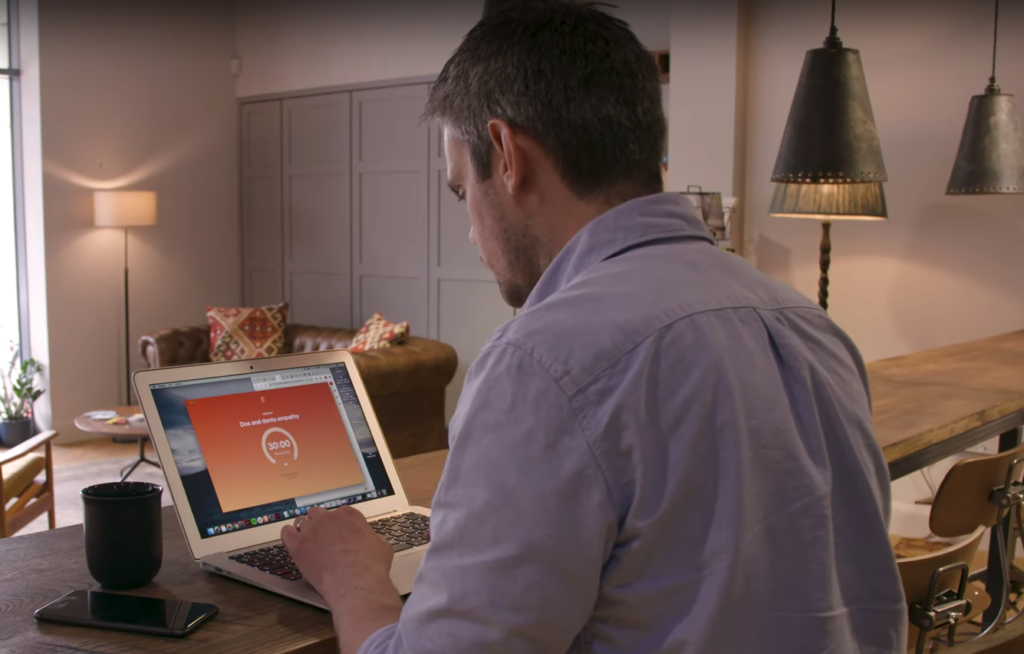
Your most common actions are what will drive your greatest results.
If you’re used to slacking off, getting distracted, and doing mediocre work, you can expect weak results when it comes to career advancement.
By following and implementing these tips that teach you how to be more productive, you’ll notice work seems like less effort and more rewarding. It’s finding the “productivity hacks” that work best for you that will inspire the longest-lasting changes.
Above all, resist the temptation to put in more hours to get the work done. You may just need to tweak your work processes to see your efficiency levels spike.
We all have 24 hours in a day and even less than that when it comes to working. Try these tips to see how you can make your workday feel a lot more productive so you can enjoy your time away from work to the fullest.
What are your favourite tips for staying on task and being more productive at work? Let us know in the comments below!






